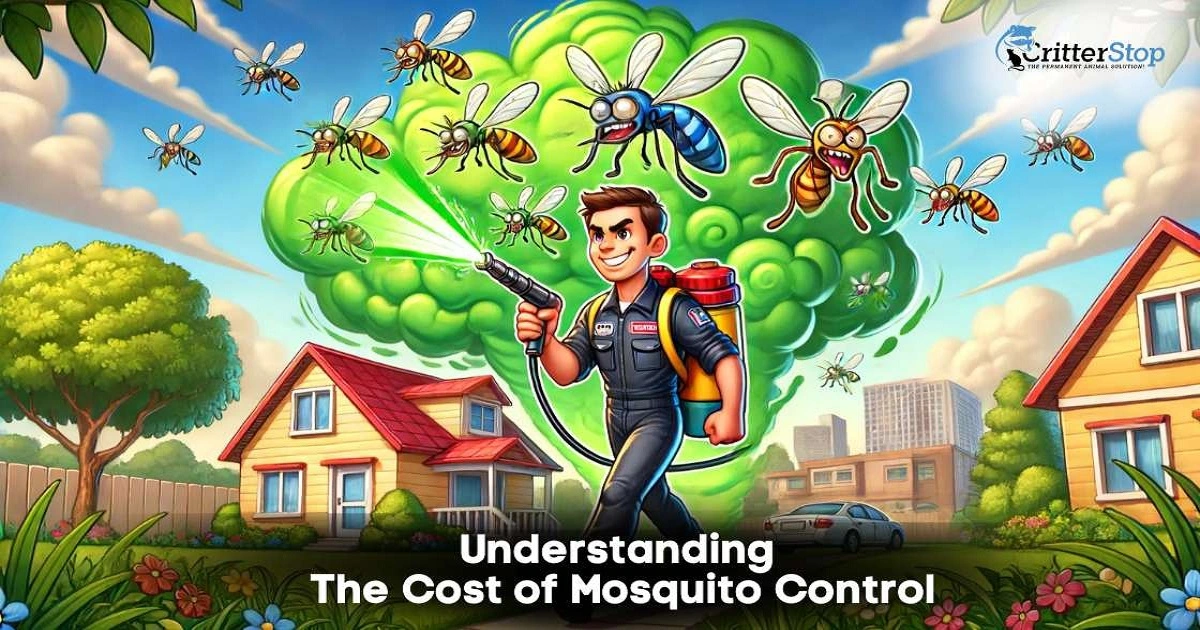
Mosquito control is a crucial aspect of public health in many regions worldwide. Mosquitoes carry and transmit various diseases, including malaria, dengue fever, and Zika virus. Given the potential severity of these diseases, it is important to invest in mosquito control measures to protect public health.
However, the cost of mosquito control can be significant. Mosquito control efforts may involve various strategies, including insecticides, mosquito nets, and other preventative measures. These measures are costly to implement and maintain, particularly in areas with high mosquito populations. As a result, many communities and governments may struggle to fund effective mosquito control programs.
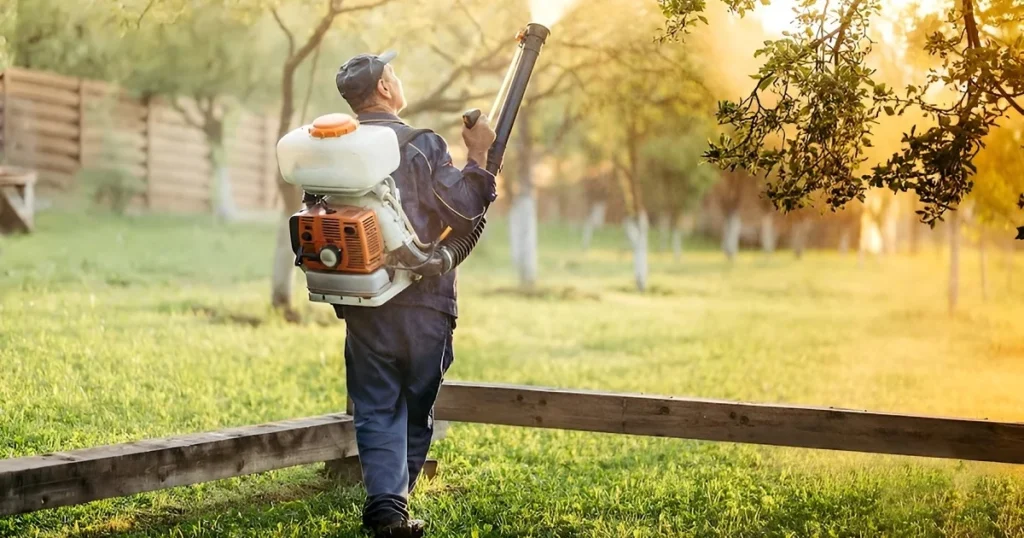
Mosquito control is managing the population of mosquitoes to reduce their negative impact on human health and comfort. Effective mosquito control can prevent the spread of mosquito-borne diseases and minimize the nuisance caused by their bites.
Several methods are used for mosquito control, and the choice of method depends on the severity of the mosquito problem, the location, and the budget.
Chemical control involves using pesticides to kill adult mosquitoes. This method is effective but expensive and may have negative environmental impacts.
Biological control involves using natural predators, such as fish or bacteria, to control mosquito populations. This method is safe for the environment but not always effective.
Physical control involves using barriers, such as mosquito nets or screens, to prevent mosquitoes from entering an area. This method is cost-effective but may not be practical in all situations.
Effective mosquito management can have several benefits, including:
While the cost of mosquito control may vary depending on the method used and the location, you must consider the long-term benefits and potential cost savings of effective mosquito management.
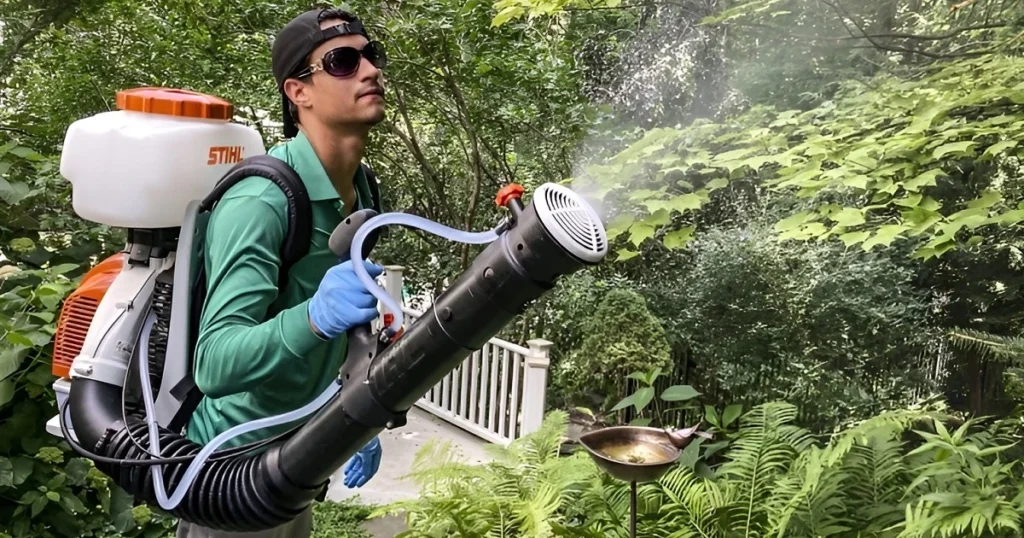
A significant factor affecting mosquito control costs is the size of the area that needs treatment. Larger areas require more time, labor, and resources to treat effectively, which can increase the overall cost of the treatment. Professional mosquito treatment for yard costs can vary depending on the size of the yard, with larger areas costing more to treat.
The frequency of treatment is another important factor that affects the cost of mosquito control. Mosquitoes can breed quickly and infest an area rapidly, so regular treatments may be necessary to keep them under control. The more frequent the treatments, the higher the cost of mosquito control will be. The average cost of mosquito treatment may be lower for less frequent treatments, but it may not be as effective in controlling mosquito populations.
The type of treatment used is also a significant factor affecting mosquito control costs. Different treatments have different levels of effectiveness depending on the specific mosquito species and the area being treated. Some treatments may require more time, labor, or resources, which increases the cost of the treatment. We must choose the proper treatment for the area while keeping the cost of mosquito control in mind.
Overall, the cost of mosquito control can vary depending on several factors, including the size of the area, the frequency, and the type of treatment used. Understanding these elements can help us make informed decisions about our clients' mosquito control needs and choose the most effective and affordable treatment options.
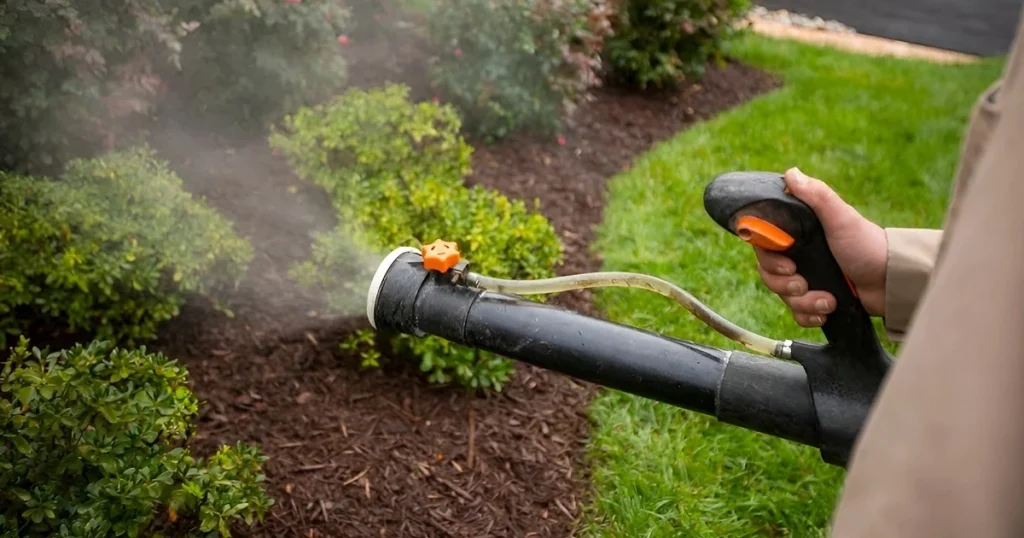
Mosquito control is an essential service that helps prevent the spread of mosquito-borne diseases. The cost of mosquito control varies depending on multiple factors, like the property's size, the severity of the infestation, and the type of treatment required. This section will discuss the average costs for mosquito treatment services.
Residential mosquito control services are designed to help homeowners protect their properties from mosquito infestations. The average cost for mosquito control in residential areas ranges from $75 to $150 per treatment, and it may vary depending on the property's size and the severity of the infestation.
Critter Stop, a pest control company in Texas, charges from $79 to $129 depending on the property size. They offer a comprehensive mosquito control service that thoroughly inspects the property, treats potential breeding sites, and applies mosquito repellent. Their services effectively reduce mosquito populations and prevent the spread of mosquito-borne diseases.
Commercial mosquito management services are designed to help businesses protect their properties from mosquito infestations. The average cost for mosquito control in commercial areas ranges from $150 to $500 per treatment. The cost can vary depending on the property's size, the severity of the infestation, and the type of treatment required.
Critter Stop also offers commercial mosquito management services for businesses in Texas. These services are tailored to each business's specific needs and may include a comprehensive inspection of the property, treatment of potential breeding sites, and application of mosquito repellent. Costs vary depending on the property's size and the severity of the mosquito infestation.
When it comes to mosquito control, many homeowners wonder whether they should hire a professional or tackle the problem themselves. One factor to consider is cost.
DIY mosquito control methods, including citronella candles, bug zappers, and homemade sprays, can be inexpensive. However, these methods are less effective than professional treatments and must be reapplied frequently.
On the other hand, professional mosquito control services can be more expensive upfront, with prices ranging from $50 to $150 per treatment, depending on the size of the yard. However, these treatments are typically more effective and longer-lasting, often providing up to three weeks of protection.
Effectiveness and safety are other factors to consider when deciding between DIY and professional mosquito control.
DIY methods such as citronella candles and bug zappers may provide some relief from mosquitoes, but they are not as effective as professional treatments. Additionally, some DIY methods may pose safety risks, such as the potential for fire with candles or the risk of electrical shock with bug zappers.
Professional mosquito control services, on the other hand, use EPA-approved products and methods that are both effective and safe. These treatments target mosquitoes specifically and can also help control other pests, such as ticks and fleas.
While DIY mosquito control methods may be more affordable, they may not be as effective or safe as professional treatments. Homeowners must weigh the costs and benefits of the options available before deciding what to do.
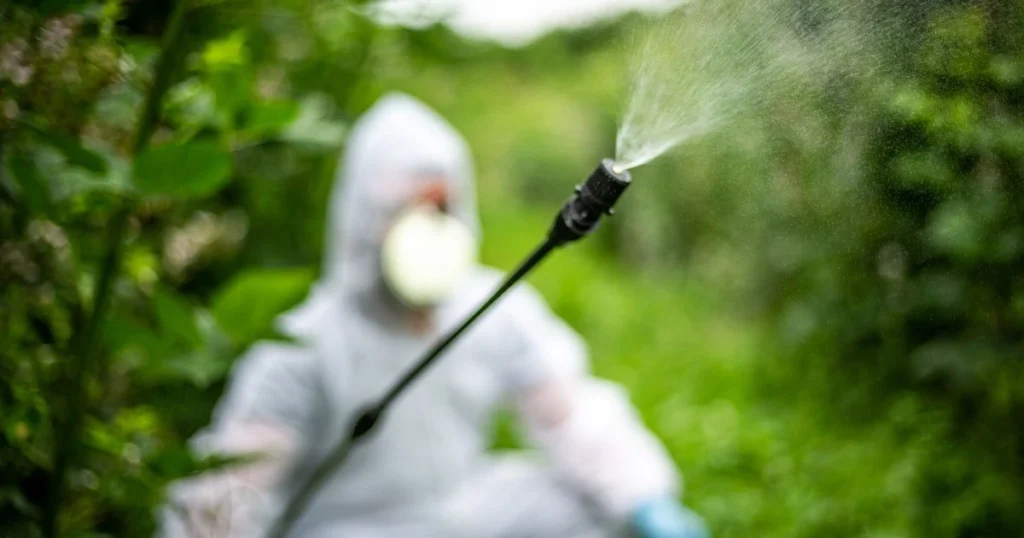
Budgeting is an essential part of mosquito control. The cost of treatment can vary depending on the area's size, the severity of the infestation, and the type of treatment required. Assessing the area's specific needs and determining the best course of action is important to create a cost-effective plan.
One way to keep costs down is prevention. This can include removing standing water, trimming vegetation, and using mosquito repellents. These steps may reduce the need for extensive treatment, ultimately saving money in the long run.
Another cost-effective approach is to work with a professional mosquito control company. These have the expertise and equipment to treat the area effectively while minimizing costs. They can also provide ongoing maintenance to prevent future infestations.
While budgeting for mosquito control is important in the short term, it is also important to consider the long-term investment. Investing in mosquito control can have significant benefits, including reducing the risk of mosquito-borne illnesses and improving the overall quality of life in the area.
One way to invest in mosquito control is to implement a comprehensive mosquito management plan. This can include regular inspections, ongoing treatment, and community education. Taking a proactive approach may reduce the need for costly reactive treatment.
Another long-term investment consideration is the use of environmentally friendly treatments. These treatments have a higher upfront cost, and they can provide long-term benefits by reducing the environmental impact and minimizing the risk to humans and other animals.
In conclusion, budgeting for mosquito control is an important aspect of creating a comprehensive mosquito management plan. By taking a cost-effective approach and considering long-term investments, the area can be effectively treated while minimizing costs and improving overall quality of life.
Regarding mosquito control, the service cost is an important factor to consider. In addition to their pricing, evaluating each service provider's value is important.
Some mosquito control companies may offer lower prices, but their services may not be as effective or long-lasting as other providers. It's important to look at the overall value that each company offers, including the quality of their services and the experience of their technicians.
One way to evaluate the value of a mosquito control service is to look at customer reviews and ratings. These give you an idea of the level of satisfaction that other customers have experienced with the service. You must consider the company's reputation and experience in the industry.
When comparing mosquito control service providers, it's important to understand the terms of their service agreements. This includes the scope of their services, the frequency of treatments, and any guarantees or warranties they offer.
Some companies offer a one-time treatment, while others offer ongoing services throughout the mosquito season. Understanding the frequency of treatments and how they will be scheduled is important to ensure that your property remains mosquito-free.
In addition, it's important to understand any guarantees or warranties the company offers. Knowing that if the service isn't effective, the company will take steps to address the issue can give you peace of mind.
Overall, when comparing mosquito control service providers, it's important to evaluate both the cost and value of their services and the terms of their service agreements. By doing so, you can make informed decisions and choose a provider that will effectively and efficiently control mosquitoes on your property.
While mosquito spraying effectively controls the mosquito population, it is not a one-time solution. Mosquitoes can quickly repopulate an area, so regular maintenance and follow-up treatments are necessary to ensure continued control. The frequency of these treatments depends on the severity of the mosquito infestation in the area.
Maintenance and follow-up treatments can add to the overall cost of mosquito control. However, many pest control companies offer discounts for regular treatments or package deals, including follow-up services.
When considering the cost of mosquito control, remember there may be hidden fees or additional services not included in the initial quote. For example, some companies may charge extra for treating areas with standing water or for treating larger properties.
You must also inquire about additional services that may be necessary, such as tick control or flea control. These services likely have an extra cost, but they can be beneficial in preventing the spread of other diseases.
Overall, the cost of mosquito control will depend on various factors, including the size of the area to be treated, the severity of the mosquito problem, and the frequency of follow-up treatments. Understanding all costs and services before committing to a pest control company.
Investing in professional mosquito control services offers substantial benefits beyond cost savings, including:
When it comes to pest control and wildlife removal, Critter Stop stands out as a trusted and reputable service provider. With years of experience and a commitment to customer satisfaction, Critter Stop offers:
To safeguard your property from mosquitoes and other wildlife nuisances, contact Critter Stop at (214) 234-2616 for a free inspection and consultation. Discover why Critter Stop has earned a stellar reputation for high-quality work and online customer service.
Understanding the cost of mosquito control empowers homeowners and businesses to make informed decisions about protecting their environments from mosquitoes and the diseases they carry. You can effectively manage mosquito populations by evaluating property size, treatment methods, and ROI while maintaining a safe and enjoyable outdoor space.
For professional assistance in mosquito control and wildlife removal, trust the experts at Critter Stop. Call us today at (214) 234-2616 or visit our website to schedule your free inspection and take the first step towards a pest-free environment.
At Critter Stop, we recognize the importance of understanding the cost of mosquito control to make informed decisions in protecting your property from these pests. Below are answers to common questions regarding mosquito control costs:
The average cost of mosquito control services can vary widely based on factors such as the property's size, the severity of the mosquito infestation, and the chosen treatment method. Prices can generally range from $80 to $130 for a monthly treatment session, with ongoing plans typically costing more due to regular maintenance.
Several features impact the final price of mosquito control, including property size, the type of treatment required (e.g., chemical sprays, fogging, or natural methods), and the geographical location. Properties with extensive landscaping or water features may require more intensive treatments, affecting overall costs.
Mosquito treatment costs can vary significantly from state to state due to differences in climate, local regulations, and demand for pest control services. States with warmer climates and higher mosquito populations may have higher average costs than cooler regions.
Higher labor and operational expenses can influence mosquito control costs in big cities. Prices may range from $100 to $500 per treatment session, depending on the property size and the infestation level.
In smaller towns, mosquito treatment costs may be lower than urban areas, typically ranging from $50 to $250 per treatment session. Factors such as local competition and the availability of pest control services can also impact pricing.
Yes, natural surroundings such as ponds, lakes, and dense vegetation can affect mosquito treatment costs. These environments provide breeding grounds for mosquitoes, necessitating targeted treatments that may increase overall service expenses.
Specialized equipment such as foggers, sprayers, and safety gear can increase the prices of mosquito service costs. Advanced technology and high-quality products used in treatments may also contribute to higher service fees.
The cost for mosquito control companies to service clients varies based on operational expenses, including labor, equipment maintenance, and overhead costs. These factors are reflected in the pricing of mosquito control services offered to customers.
A mosquito treatment for a yard typically ranges from $100 to $300 per session. The cost depends on the yard's size and the chosen treatment method, whether a one-time treatment or part of a recurring maintenance plan.
Mosquito spraying costs for large properties can range from $200 to $1,000 per session or more, depending on the property's size and the extent of the mosquito infestation. Regular treatments may be necessary to maintain effective control.
Monthly mosquito spraying services generally cost between $100 and $500, depending on the property's size and the service provider's pricing structure. Discounts may apply for customers who opt for ongoing maintenance plans.
When requesting mosquito control service cost quotes, provide details such as the property size, current mosquito issues, and specific treatment preferences. This information helps pest control experts tailor accurate quotes that meet your needs.
Pest control experts calculate mosquito yard treatment costs based on factors like the yard's square footage, the severity of the mosquito problem, and the chosen treatment method. They also consider ongoing maintenance needs for accurate pricing.
Mosquito spraying costs in Texas can vary depending on the region, local regulations, and the service provider. Prices are typically not fixed and can fluctuate based on seasonal demand and specific customer requirements.
In urban areas, mosquito spray costs may range from $100 to $500 per treatment session, depending on factors such as property size and the density of mosquito populations. Urban environments often require more frequent treatments to manage high mosquito activity.
Cities may budget varying amounts for mosquito treatment based on size, population density, and local mosquito control strategies. Average costs can range from several thousand to tens of thousands of dollars annually, depending on municipal needs.
When mosquito activity increases in spring, the average cost of mosquito control may rise due to higher service demand. Prices can range from $100 to $500 per treatment session, depending on the property size and requirements.
Proactive treatment plans may range from $200 to $1,000 per season. Regular treatments help maintain effective control and reduce the risk of mosquito-borne diseases.
The average cost of mosquito control in a school area can vary depending on the school's size, surrounding environment, and specific pest control needs. Depending on the scope of services required, costs may range from a few hundred to several thousand dollars annually.
Mosquito treatment costs in industrial spaces depend on factors such as the size of the facility, outdoor areas, and environmental conditions. Prices may range from $500 to several thousand per treatment session, tailored to industrial pest management needs.
Contact Critter Stop at (214) 234-2616 for expert mosquito control services and a free inspection. Critter Stop has a fantastic reputation and online customer reviews because it provides high-quality work and great customer service.
Visit our Critter Library and learn more about our furry friends